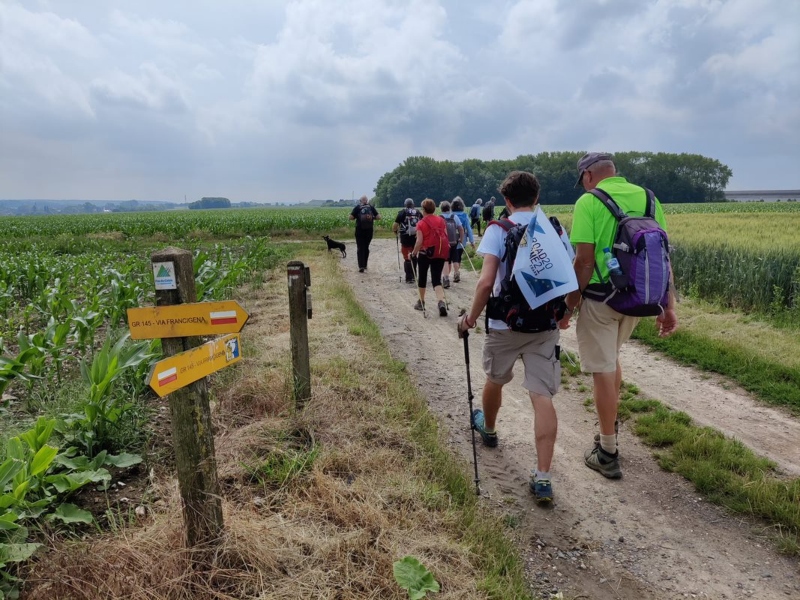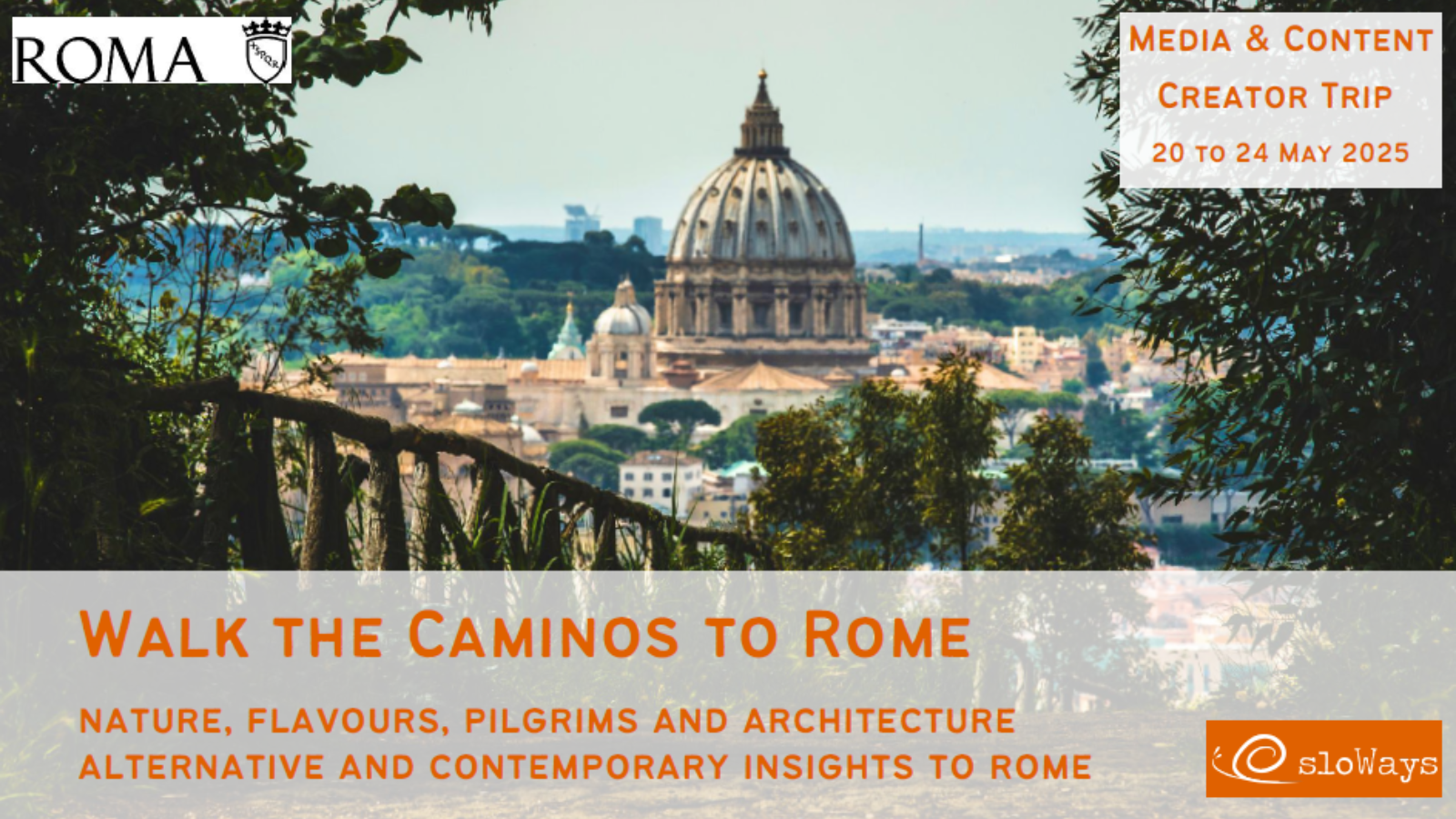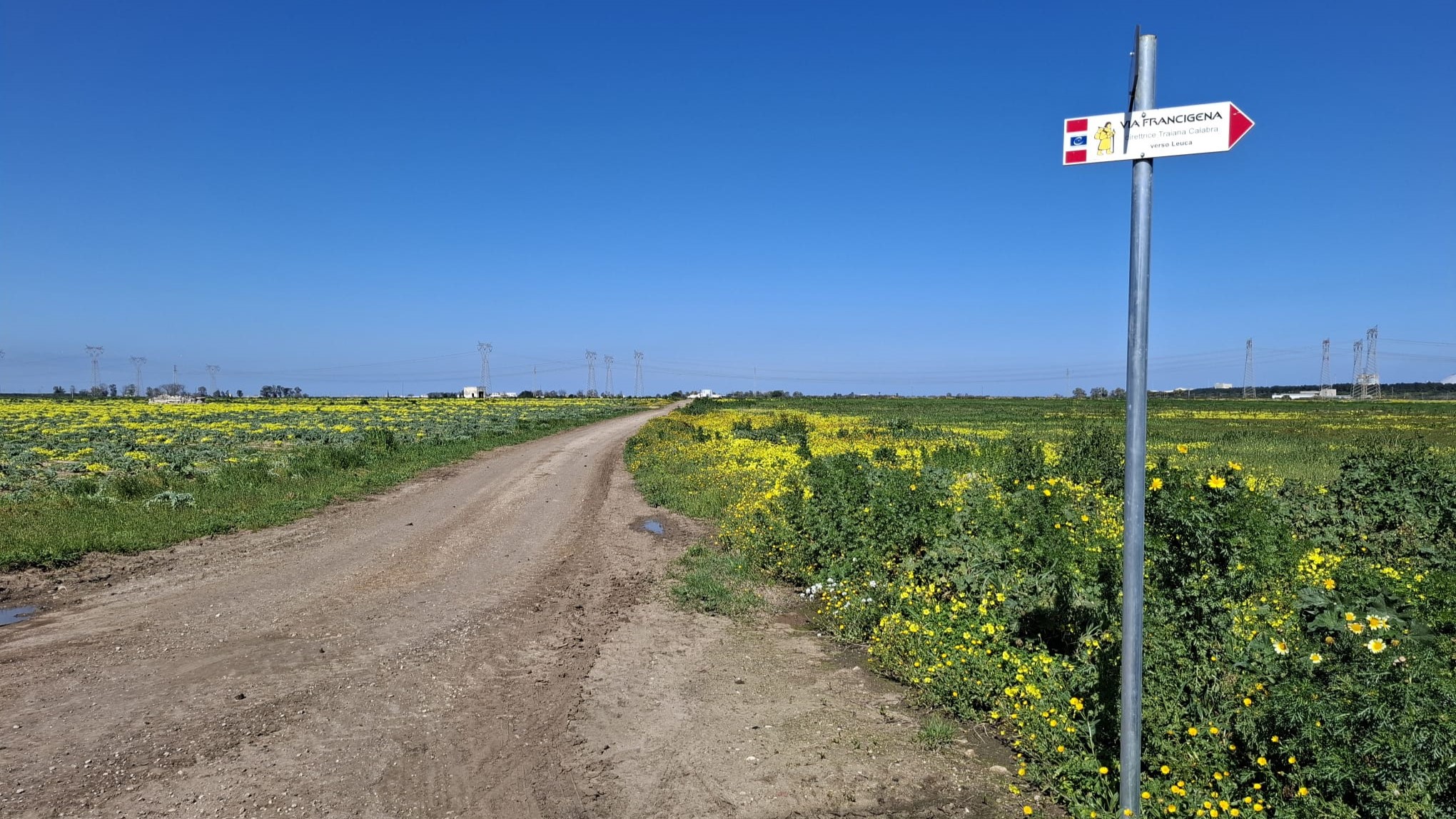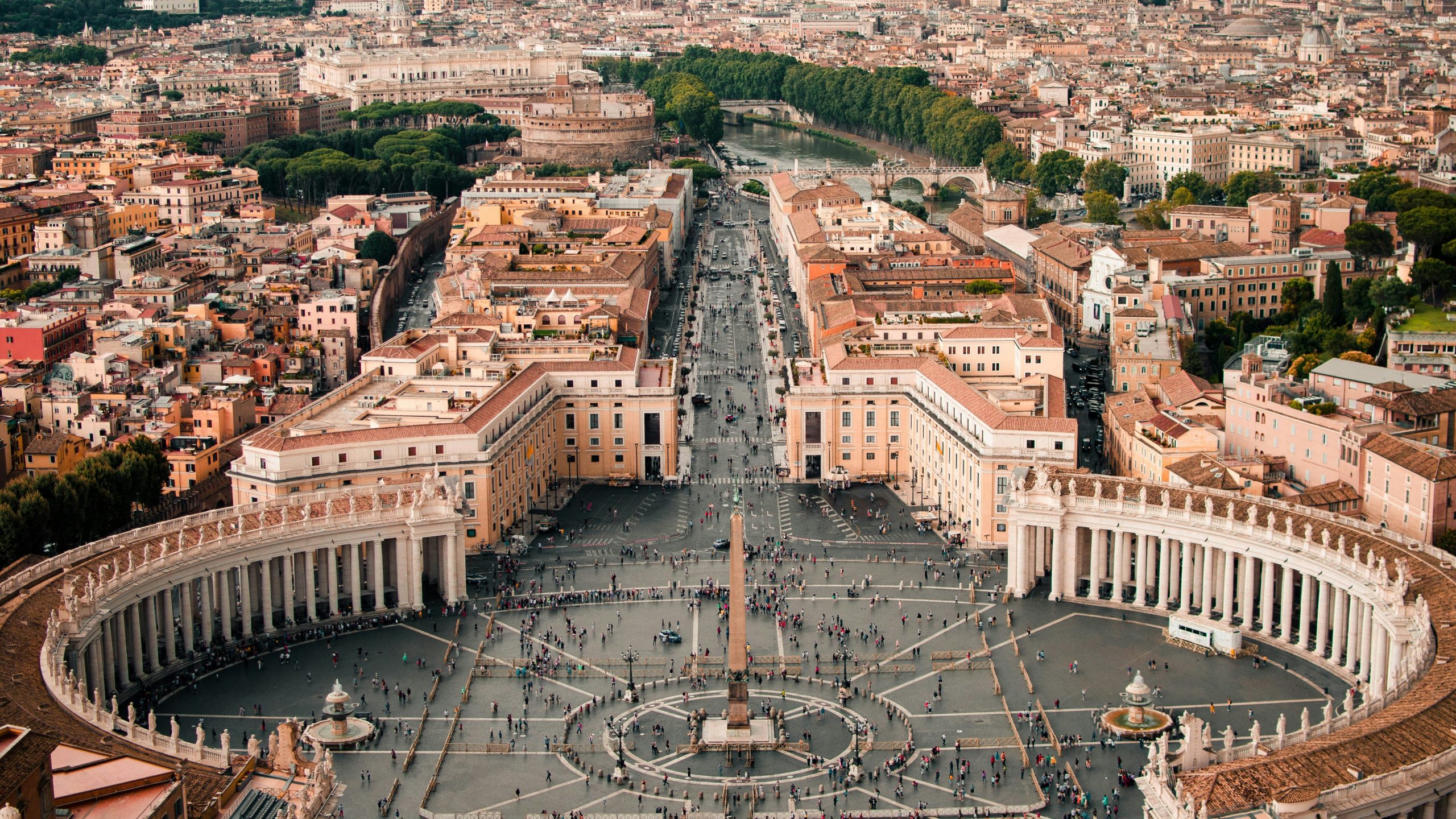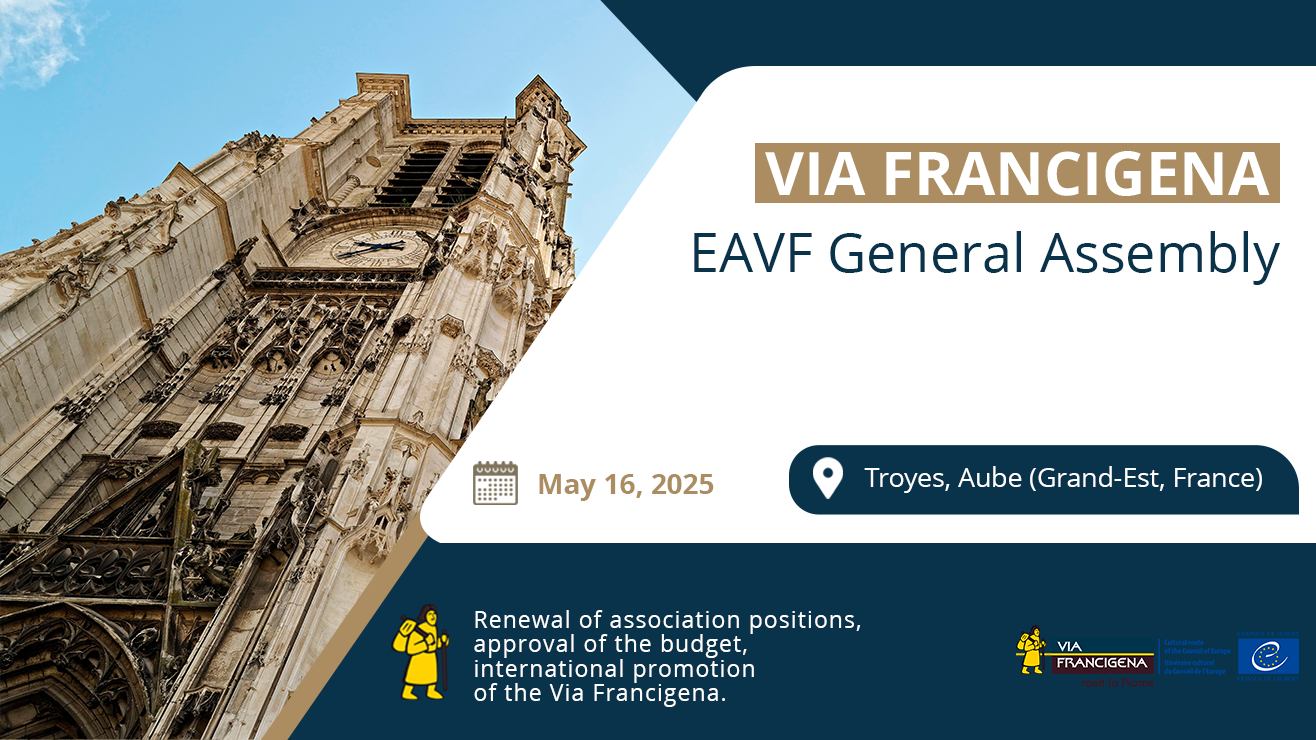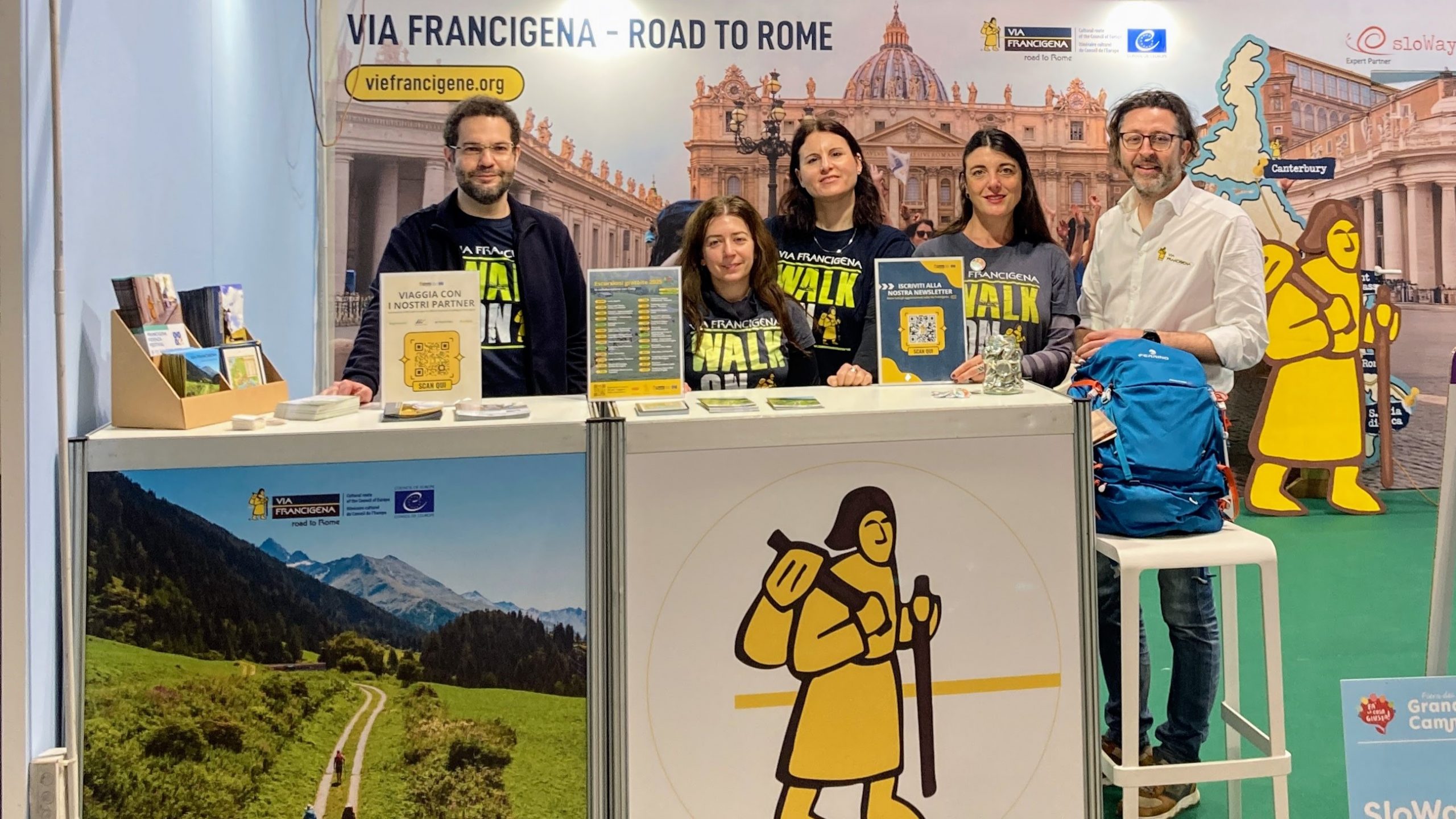On the 27th of September we celebrate the World Tourism Day, a recurrence ideated by the General Assembly of the United Nations in 1979 to celebrate the impact of the tourism sector on the social, political, cultural, and economic development of populations.
This celebration falls within a peculiar year for our Association, which is currently honoring its 20th birthday on the road, with a walk/evet along the 3.200 km of the Via Francigena. 2021 is proving to be a crucial year for the entire tourism sector, considering that outdoor activities have never seen such record numbers before.
The summer we are leaving behind us has in fact outweighed the pre-pandemic levels in relation to hiking and cycling tourism, because of Covid restrictions and the common desire to travel safely and outdoor; this leads to an increase in the number of pilgrims along the main European routes, with the Via Francigena on the frontline together with the Camino de Santiago. We are talking about high-quality tourism with an international profile.
Such inclusive growth of tourism is the main focus of the World Tourism Day this year, which highlights the potential of a sector able to promote economic growth among territories, valuing their uniqueness and integrity. Sustainable tourism is an opportunity for emancipation for areas which are off the beaten tracks, thanks to cultural exchange and network creation among pilgrims, communities and workers. The Via Francigena in its 3,200 km is mostly crossed by rural areas (90%), and maybe because of this it was selected as a ‘best practice’ for sustainable development in the tourism sector by the UNWTO (United Nations World Tourism Organization. The discovery of local heritage in all its richness and complexity assigns new value to the uniqueness of each location, on the many levels of landscape, arts, food and wine, and folklore. Inclusive and sustainable tourism thus becomes a source of opportunities and challenges, with due respect of territories in order to preserve their environment and the wealth of communities.
Covid has set new habits and preferences among people which lead to a new travel style, even on the wide scale: discovering the world in an inclusive and sustainable way is a personal choice which impact society as a whole. The Via Francigena – Road to Rome 2021 initiative aims to be a message of hope to continue in this direction, but also an omen for the collaborative growth of the tourism sector, step by step.



